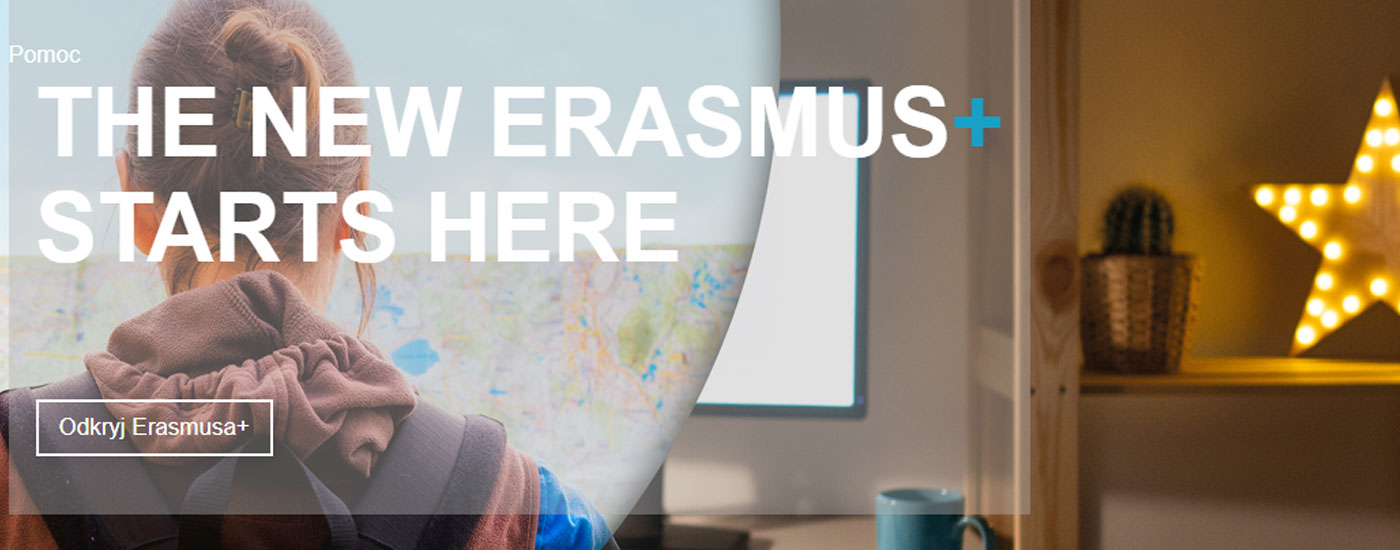Institute of Immunology and Experimental Therapy is applying for the Erasmus Plus Charter for Higher Education by the European Commission
http://erasmusplus.org.pl/szkolnictwo-wyzsze/
https://eacea.ec.europa.eu/erasmus-plus_en
The Institute’s international EU and non-EU strategy
The overall strategy of the Institute is creation a vivid intellectual environment and modern research infrastructure to perform an excellent research measured by publication in highly impacted journals, conducting interdisciplinary collaborations and holding translational studies for mutual benefits of our academic activity and the industry partners. We prioritize creative, critical, well-established and experienced institutional partners to build together centres of the scientific expertise, training and innovative research of the highest academic standards. We are ready for the cross-border cooperation with no formal territorial boundaries. An exchange of the academic staff and students is creating a knowledge network, beneficial for our institutional Partners as well as every mobile person. The research profile of the Institute is focused on basic research on the immune system as well as the translational studies in the field of application of biological results to biotechnological business.
The Institute was founded by world-recognized scientists: Professor Ludwik Hirszfeld (who established the science of blood group antigens), Professor Tadeusz Baranowski (one of the founders of enzymology), and Professor Stefan Ślopek (who developed bacteriophage therapy and vaccines against dysentery).
The main research areas at the Institute are immunology, oncology, experimental therapy and microbiology. Our research covers the basic functioning of the immune system and the body’s resistance mechanisms of bacterial and viral infections, for treatment of drug-resistant bacterial infections with bacteriophages, and basic studies associated with transplantation of hematopoietic cells and organs. We create and explore new compounds of antitumor activity as well as antibacterial, antifungal and immunomodulators used for prophylaxis and therapy of neurodegenerative diseases.
Institution’s strategy for the organisation and implementation of international (EU and non-EU) cooperation projects within the framework of the Erasmus+ Programme
The Institute collaborates extensively with universities and scientific research centres in Poland and abroad. Most of the cooperation concerns the implementation of joint research projects, carrying out research in collaboration with SMEs, mostly from pharmaceutical and biotechnological sector.
The Institute has highly qualified academic staff. Researchers on different stages of their careers held long- and short-term internships at leading research centres in EU and non-EU countries where conducted research using the techniques and state-of-art research equipment. The Institute has accepted research fellows from Germany, Spain, Slovakia, as well as from Belarus, Russia, Egypt, China and Brazil. We conduct research in collaboration with regional scientific centres as the KNOW centre, EU and worldwide.
Regarding the Erasmus Plus activities, an attractive and most desired geographical destination for our outgoing PhD students and researches as well as for institutional collaborations are the EU Member States with the utmost expertise and unique research facilities in our areas of interest, and the non-EU European countries, as Switzerland and Norway. A long-term cooperation, based on personal contacts and common publications guarantee fruitful communication, teamwork, project management and ethical attitude.
For the incoming staff and exchange students we offer an attractive destination due to recognizable research achievements, practical geographical location and, last but not least, moderate economical costs of living.
Expected impact of participation in the Erasmus+ Programme on the modernisation of the institution.
As a traditionally research institution, the Institute was least focused on the educational tasks. Nowadays the policy is to attract talented young researchers and students, both local and international, and provide them an attractive scientific environment for development and improvement of their skills and scientific passions. The institution will benefit by strengthening the quality of the academic staff through researchers’ mobility to the most recognizable EU centres of excellence and cross-border collaborations. Important added value obtained by the invitation of incoming students to the laboratories will be challenging the multilingual and multicultural interactions, building the unique scientific and social environment.
Linking the higher education, research as well as the contacts with SME for excellence and regional development will bring important effect on the Institute policy.
New sources of founding and management of the research activities will emerge when collaboration project in frame of Erasmus+ Programme should be prepared and completed in collaboration with EU and non-EU countries.
